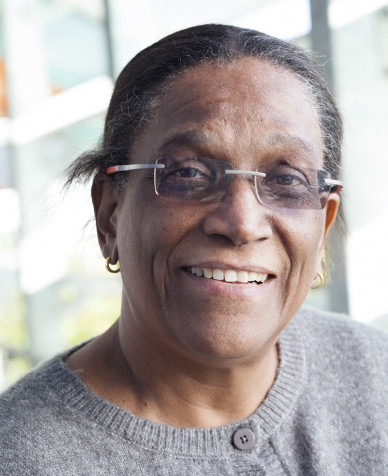Fellows

Michèle ORIOL
Executive secretary of the Inter-Ministerial Committee for Regional Development (CIAT)
Fellowship : October 2019 to June 2020
Discipline(s) : Sociology
Pays : Haïti
Research project: "the devolution of political power in Haiti: historical and anthropological inertia"
The history of Haiti is like a piece of woven fabric where only the weft thread can be seen. Beyond the events and disasters which have always grabbed people’s attention, it is an interesting exercise to try and find the warp thread in the meanderings of its history, which offers an alternative interpretation to the attentive observer.
The difficulty for statesmen to establish the legitimacy of their power once they had got away from the rationales of military hierarchy, in other words back in 1843, is obvious. Dynastic research thus underpinned the appointment of heads of State until the establishment of universal suffrage in 1950. Ironically, the model of an absolute leader which is emerging came from the French Revolution with civil commissioners (officials on missions) particularly Sonthonax, in contrast with the balance of colonial powers between the military leader (the governor) and the civil leader (the intendant).
A political class develops over time, and the same is true for forms of exclusion which limit competition. Political classes, like serial killers, have their operating methods. Implicit or explicit ideologies are used to justify the taking and keeping of power: royalists and republicans, nationals and liberals in the 19th century, noiristes and communists in the 20th century. But in every case the question of colour is omnipresent. A 21st century cut off from history sees a political class hiding its objectives without any qualms behind a language that claims to be universal: dictatorship or democracy.
Perhaps slavery and the revolution can provide some solutions to the political class’ inability to create some form of legitimacy by offering a detour via anthropology.
Biography
Michèle Oriol, born in 1956 in Port-au-Prince, Haiti, has a PhD in sociology from l’Université Paris VII-Jussieu. A graduate of the State University of Haiti (UEH) Faculty of Ethnology, in 1992 she completed her thesis on production systems and land-use structures in southern Haiti.
She has been executive secretary of the Inter-Ministerial Committee for Regional Development (CIAT) since November 2011.
She has worked as a freelance consultant for many different national and international institutions on a wide range of subjects: regional authorities and decentralization, regional economics, land use planning, land tenure, agrarian systems, vocational training, etc. She has been involved in the design and follow-up/assessment of many rural development and environmental protection projects.
She has also taught at l’Université Quisqueya and the State University of Haiti where she directed the Master’s program in history, memory and heritage/criminology.
A founding member of the Foundation for Iconographic Research, she has produced several educational exhibitions and publications in partnership with Patrick Vilaire on the history of Haiti: Images d’Española et de Saint Domingue (1979), Images d’Haïti au XIXe siècle (1981), Images de la Révolution à Saint-Domingue (1989), Chef d’État en Haïti : gloire et misères (2005) and a history and civiceducation textbook(2001). In 2002, she published Histoire et Dictionnaire de la Révolution et de l’Indépendance d’Haïti.
In July 2009 she was awarded the Order of Agricultural Merit by the French Ministry of Food, Agriculture and Fisheries and was made a knight of the Legion of Honour in December 2018.
Bibliography
ORIOL, Michèle. Manuel d’histoire et d’éducation civique. Du peuplement des Antilles à l’indépendance, Lannoo, Belgium, 2001.
ORIOL, Michèle. Histoire et Dictionnaire de la Révolution et de l’Indépendance en Haïti, 1789-1804, Lannoo, Belgium, 2002.
ORIOL, Michèle. Chefs d’Etat en Haïti, gloire et misères, Fondation pour la Recherche Iconographique et Documentaire, Lannoo, Belgium, 2006.
ORIOL, Michèle. In collaboration with Véronique Dorner. L’indivision en Haïti. Droits, temps et arrangements sociaux, Economie Rurale 330-331, France, July/September 2012.
ORIOL, Michèle. Cahier d’histoire d’Haïti 1. De 1843 à 1870 : changer de génération. C3 Editions, Port-au-Prince, 2017.

